Is Off-Roading a Warranty Killer? Understanding Modifications and Exclusions on Your Jeep
The Lure of the Trail vs. The Fine Print: Balancing Adventure and Assurance
The moment you drive a new Jeep off the lot, you’re not just buying a vehicle; you’re investing in a lifestyle. That lifestyle often involves dirt, mud, rocks, and challenging terrain. Jeeps are built for adventure, designed with robust components and four-wheel-drive systems engineered to tackle tough conditions. However, every new vehicle comes with a factory warranty, a promise from the manufacturer to cover defects in materials or workmanship for a specified period or mileage. This warranty is your financial safety net against unexpected repairs. The conflict arises when the very activities your Jeep is designed for – extreme off-roading – seem to clash with the protective clauses of that warranty.
It's easy to get caught up in the excitement of customization and pushing your vehicle's limits. Many Jeep owners view modifications not just as enhancements, but as necessities for their preferred trails. Yet, overlooking the potential impact on your warranty can lead to costly surprises down the road. The key is to understand where the line is drawn, what the manufacturer considers 'normal use,' and how modifications factor into the equation. It's about being informed so you can make confident decisions, whether you're adding a suspension lift or navigating a technical rock crawl.
Understanding Your Jeep's Warranty: What It Covers (and Doesn't)
A standard new vehicle warranty, often called a bumper-to-bumper or limited warranty, typically covers most parts of your vehicle against manufacturing defects. This means if a component fails due to poor design or faulty assembly, the manufacturer will repair or replace it at no cost to you. Powertrain warranties specifically cover the engine, transmission, and drive systems. These are crucial for off-roaders.
What these warranties generally do NOT cover, however, is damage caused by abuse, neglect, accidents, or lack of proper maintenance. This is where off-roading enters the grey area. While Jeeps are built tough, they are not indestructible, and pushing them beyond their intended limits, or sustaining damage from aggressive off-road driving, can be seen by the manufacturer as 'abuse.' Similarly, failing to perform routine maintenance after an arduous trail ride, such as checking fluids or cleaning vital components, could also lead to warranty claim rejections. It's essential to read your specific warranty document carefully to understand the precise exclusions.
Modifications: The Elephant in the Garage and the Magnuson-Moss Act
One of the most common questions is, “Will my modifications void my warranty?” The simple answer is: not automatically. This is largely thanks to the Magnuson-Moss Warranty Act of 1975, a federal law that protects consumers. This act states that a manufacturer cannot void your entire warranty simply because you installed an aftermarket part or performed a modification. For a warranty claim to be denied, the manufacturer must prove that the aftermarket part or modification *caused* the failure of the original part.
For example, if you install an aftermarket lift kit, and your stereo system suddenly stops working, Jeep cannot deny your stereo warranty claim because of the lift kit. The two are unrelated. However, if that lift kit leads to premature wear on your CV joints or causes steering components to fail, then Jeep could potentially deny a warranty claim for those specific parts, arguing that the modification was the direct cause of the failure. This distinction is incredibly important for any Jeep owner considering aftermarket upgrades like larger tires, heavy-duty bumpers, winches, or suspension changes. Always be prepared to demonstrate that your modifications are either unrelated to the problem or were installed professionally and didn't contribute to the failure.
The Off-Road Exclusion Clause: A Reality Check for Trail Enthusiasts
While the Magnuson-Moss Act provides significant protection regarding aftermarket parts, manufacturers often have specific clauses within their warranties that address 'off-road use' or 'abuse.' These clauses are designed to protect the manufacturer from covering repairs due to damages sustained from operating the vehicle beyond its intended design or capabilities, or in competitive events. For example, a warranty might explicitly exclude damage caused by racing, overloading, or operating the vehicle in a manner for which it was not designed.
The interpretation of 'off-road use' can be subjective. Gentle trail riding on designated paths might be considered acceptable, while rock crawling through boulder fields or aggressive high-speed desert running could be deemed abuse. If a dealer determines that damage to your axles, suspension, or drivetrain was a direct result of extreme off-road activity, they might deny a warranty claim. It's vital for off-roaders to understand that while their Jeep is capable, there are still limits to what the factory warranty will cover when those limits are pushed too far. Always consider the potential risk versus reward when tackling particularly challenging terrain.
Proving the Link: Dealer's Burden vs. Owner's Responsibility
The Magnuson-Moss Warranty Act places the burden of proof on the manufacturer or dealer to demonstrate that an aftermarket part or the manner of use caused the failure. They can't just point to your lift kit and say, 'Warranty void.' They need to show a direct causal link between the modification or off-road activity and the specific component that failed. This is a crucial point for consumers.
However, as an owner, you also have responsibilities. Documenting your modifications, keeping receipts, and having installations performed by reputable shops (preferably those familiar with Jeep and aftermarket components) can significantly strengthen your position if a dispute arises. Maintaining a detailed service history, especially after strenuous off-road excursions, also helps. If your dealer suspects off-road damage or a modification-induced failure, it can become a lengthy and frustrating process. Being prepared with documentation and a clear understanding of your rights can make a big difference.
Best Practices for Off-Roaders and Their Warranty
So, how can you enjoy your Jeep off-road and still protect your warranty as much as possible? Here are some best practices:
- Communicate with Your Dealer: Before making significant modifications, talk to your dealership's service department. Some dealerships are more 'mod-friendly' than others and might even offer branded aftermarket parts that won't jeopardize your warranty. Building a good relationship can be invaluable.
- Choose Reputable Parts and Installers: Opt for quality aftermarket parts from well-known manufacturers. Have them installed by certified technicians or reputable off-road shops that understand how to properly integrate them without compromising other systems. Poorly installed parts are a common cause of issues.
- Understand the Limits: Know your Jeep's factory capabilities and your own driving skills. Avoid pushing your vehicle beyond its reasonable limits, as this is where 'abuse' claims can arise.
- Document Everything: Keep detailed records of all modifications, including receipts, installation dates, and the shop that performed the work. Maintain meticulous service records, especially after heavy off-road use.
- Consider Off-Road Specific Insurance: Standard auto insurance often has limitations on off-road damage. Look into specialized off-road vehicle insurance or discuss expanded coverage with your current provider.
- Look for Mopar Parts: Jeep's own Mopar brand offers a range of aftermarket accessories and performance parts that are designed to integrate seamlessly and often come with their own warranty, which can sometimes work in conjunction with your factory warranty.
By following these guidelines, you can significantly mitigate the risk of warranty denial while still enjoying the full potential of your Jeep.
Conclusion
The bottom line is that off-roading your Jeep doesn’t automatically void your warranty, and neither do most modifications. Thanks to consumer protection laws like the Magnuson-Moss Warranty Act, the burden of proof lies with the manufacturer to demonstrate a direct link between a modification or your off-road activity and the specific failure. However, this doesn’t give you a free pass to abuse your vehicle or install subpar parts without consequence. Informed decisions, responsible modifications, careful driving, and thorough documentation are your best friends in preserving your Jeep's warranty. Enjoy those trails, embrace the adventure, but do so with knowledge and preparation to ensure your investment is protected for years of fun to come!Where can I find my VIN?

Related Topics
- Bumper-to-Bumper vs. Powertrain: Understanding Your Mitsubishi New Vehicle Limited Warranty
- Protecting Your Hybrid Investment: Jeep 4xe Battery and Component Warranty Explained
- Buying Used? The Critical Difference Between Transferable and Non-Transferable Lexus Warranties
- Beyond the Engine: Surprising Components Covered by Your Hyundai New Vehicle Limited Warranty

